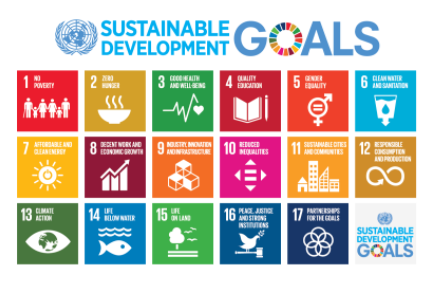The 2030 Agenda for Sustainable Development (the 2030 Agenda) is the boldest agenda for humanity and the most ambitious anti-poverty, pro-planet agenda ever adopted by the United Nations. Countries, especially developing countries, are in great need of innovative approaches and partnerships to facilitate their progress towards achieving the Sustainable Development Goals (SDGs). SDG 17, which reads "Strengthen the means of implementation and revitalize the Global Partnership for Sustainable Development", recognizes multi-stakeholder partnerships as important vehicles for mobilizing and sharing knowledge, expertise, technologies and financial resources to support the achievement of the SDGs in all countries, particularly developing countries. SDG 17 further seeks to encourage and promote effective public, public-private and civil society partnerships, building on the experience and resourcing strategies of partnerships.

It is generally accepted that space activities, technologies and applications, as innovative approaches, can help countries achieve the SDGs and comply with commitments taken within UN conventions. However, the importance of space has not been fully recognized by the international community and the potential of it has not been fully unlocked for sustainable development.
The United Nations Committee on the Peaceful Uses of Outer Space (COPUOS), at its 60 th session in 2017, acknowledged the significant role of space science and technology applications in the implementation of the 3 global development frameworks adopted in 2015: the 2030 Agenda, in particular the Sustainable Development Goals; the Sendai Framework for Disaster Risk Reduction 2015-2030; and the Paris Agreement on climate change. COPUOS further agreed that UNOOSA should explore various means to raise awareness of the benefits of space-based solutions, and encouraged the building of stronger partnerships, cooperation and coordination, including with industry and the private sector.
The
draft resolution of the fiftieth anniversary of the United Nations Conference on the Exploration and Peaceful Uses of Outer Space (UNISPACE+50), endorsed by the High-level Segment of UNISPACE+50 in June 2018 and to be adopted by the General Assembly, emphasized the need to build stronger partnerships at all levels in order to enhance the contribution of space activities for the realization of the 2030 Agenda, invited COPUOS to develop a "Space2030" agenda and implementation plan, and acknowledged the importance of a global partnership and strengthened cooperation among Member States, intergovernmental and non-governmental organizations, industry and private sector entities in fulfilling the "Space2030" agenda and its implementation plan. The 61 st session of COPUOS agreed to the establishment of a working group under a new agenda item "Space2030" agenda.
UNOOSA, in its capacity as the secretariat of COPUOS and with its unique mandate in promoting international space cooperation and space capacity building, is determined to help countries, in particular developing countries, achieve the SDGs, and is making efforts to be ready for the implementation of the "Space2030" agenda by forging partnerships with and among multi-stakeholders.
The United Nations/Austria Symposium on Space for the Sustainable Development Goals (September 2018) and the United Nations/Germany High-Level Forum "the way forward after UNISPACE+50 and on Space2030"(November 2018) offer general recommendations on space for the SDGs. The UN/China Forum on Space for the Sustainable Development Goals will build on these recommendations and bring together space solutions providers and countries to build partnerships for the SDGs.
As one of the follow-up actions to the Declaration of Intent to cooperate on the Belt and Road Space Information Corridor between the United Nations, represented by the Office for Outer Space Affairs and the China National Space Administration, the Forum will also contribute to the Belt and Road Initiative to benefit countries along the Belt and Road. (For further information on the Belt and Road Space Information Corridor, please refer to
a technical presentation made during the 55th session of the Scientific and Technical Subcommittee, COPUOS)
While the Forum is co-organized by the United Nations Office for Outer Space Affairs and the China National Space Administration, the Ministry of Foreign Affairs of China is also supporting the organization of the Forum.
 It is generally accepted that space activities, technologies and applications, as innovative approaches, can help countries achieve the SDGs and comply with commitments taken within UN conventions. However, the importance of space has not been fully recognized by the international community and the potential of it has not been fully unlocked for sustainable development.
It is generally accepted that space activities, technologies and applications, as innovative approaches, can help countries achieve the SDGs and comply with commitments taken within UN conventions. However, the importance of space has not been fully recognized by the international community and the potential of it has not been fully unlocked for sustainable development. Working language
Working language Expected Participants
Expected Participants Participation requirements, posters and presentations
Participation requirements, posters and presentations Financial support
Financial support Deadline for Submission of Applications and Abstracts
Deadline for Submission of Applications and Abstracts Life and Health Insurance
Life and Health Insurance Contact Information
Contact Information